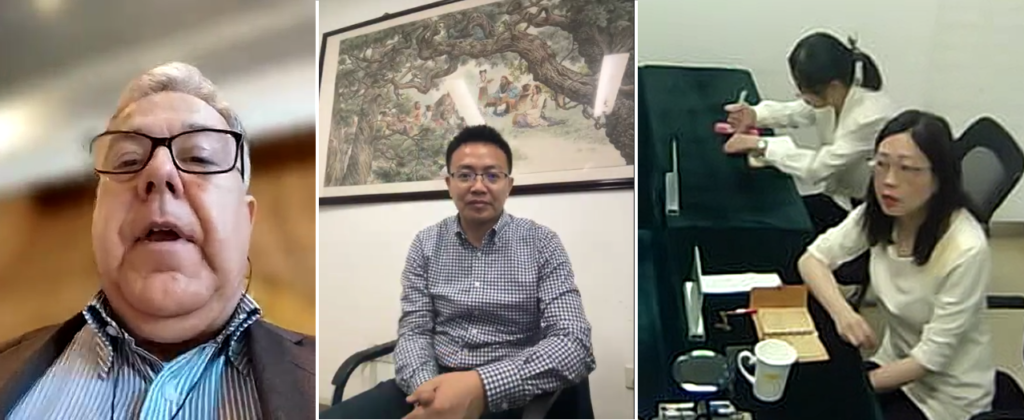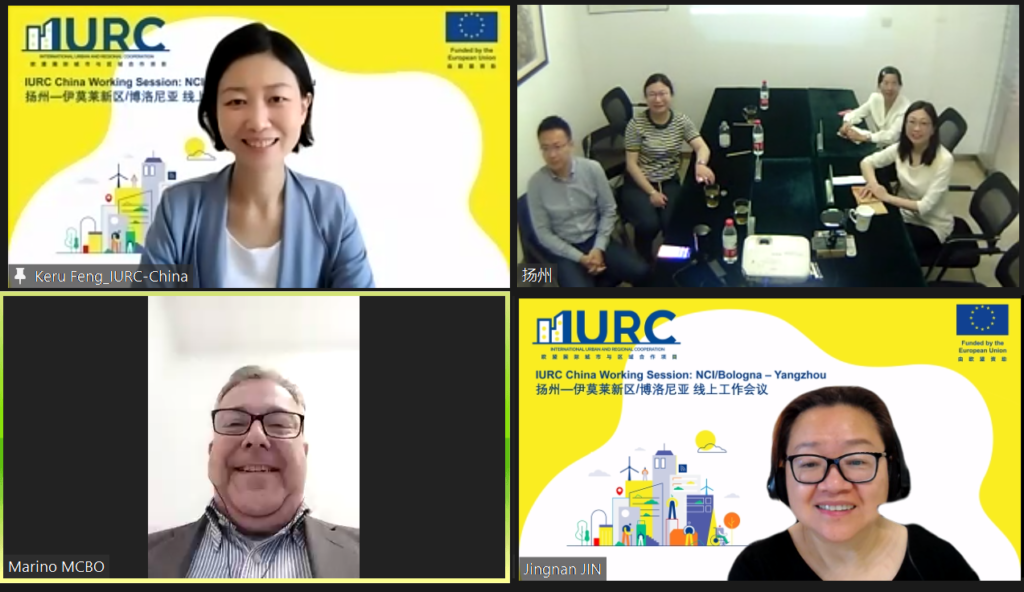On May 26th, 2023, a productive working session to foster collaboration between NCI/Bologna and Yangzhou was conducted. The meeting provided a timely opportunity to discuss the progress made since the last gathering. Representatives from NCI/Bologna and Yangzhou presented updates on their respective efforts, discussed the plans for action towards the implementation of the joint Green Design Centre, and planned the study visit from Bologna to Yangzhou. Both parties expressed their commitment to exchanging knowledge and experiences in the field of green city development.
Ms. WANG Qian, Team Leader of IURC China, moderated the session and delivered an opening remark. She highlighted the MoU signed between Yangzhou and NCI/Bologna in December 2021. Despite the challenges posed by the pandemic in the past two years, both parties made great endeavours to collaborate. As China embarks on the path to reopening, the session aimed to give new momentum to future cooperation, facilitating dialogues, and exploring possibilities for resource allocation and upcoming arrangements within the cooperation framework.
Mr. Marino Cavallo, the Head of the Research, Innovation and EU project management Service in Bologna Municipal Government underlined the importance to reinforce the cooperation. He said the recent flood disaster in northern Italy emphasized the necessity of investing in the development of a resilient green city. He strongly recommended a joint project on urban resilience cooperation, with the integration of cultural and artistic perspectives, especially in the preservation and renovation of neighbourhoods and historic buildings, aiming to improve the well-being of citizens. He emphasized the roles of government, universities, green design institutions, and other stakeholders in fostering cultural heritage resilience and nature-based solutions. He expressed eagerness to on-site work and in-person meetings for solid cooperation.

Mr. TAO Xiaojun from the Yangzhou Development and Reform Commission retrospected the cooperation between Yangzhou and NCI/Bologna, underling the MoU signed during the COVID time in December 2021. He introduced several initiatives in Yangzhou to promote low-carbon transportation, green finance, urban renewal, and historical heritage protection. He introduced Yangzhou University and the Green Design Association as key contributors in the cooperative projects, with their profound knowledge in sustainable urban renewal and green product design.
Ms. HAN Wei, Secretary-Genera, Yangzhou Green Design Association introduced the establishment of the Green Design Association under the guidance of the National Development and Reform Commission (NDRC). The association routinely organizes exhibitions, educational sessions, and scholarly exchanges, aiming to establish a collaborative platform involving the government, design institutions, and enterprises. Ms. Han suggested cooperating with NCI/Bologna on heritage preservation and the regeneration of old industrial areas. She expressed interest in visits by Yangzhou enterprises to Italy with a focus on promoting local SMEs and facilitating cooperation.

Ms Keru FENG, Key Expert of IURC China expressed gratitude for both cities’ commitment to the formulation of the joint Green Center. She proposed identifying a concrete pilot project for collaboration, including knowledge exchange and technical support, highlighting the promising aspects of both Yangzhou and NCI/Bologna in rich cultural heritage and experience in its protection.
The meeting concluded with a discussion on the next steps. Both cities expressed a keen desire to organize in-person meetings and on-site study visits. They agreed on a suitable time for the delegates from NCI/Bologna to visit Yangzhou. A consensus was also reached on the establishment of an exchange channel to facilitate knowledge sharing and to ensure effective communication for further cooperation. The working session showcased the shared vision of NCI/Bologna and Yangzhou and the importance of continued dialogue between the two cities in green resilient urban development.

